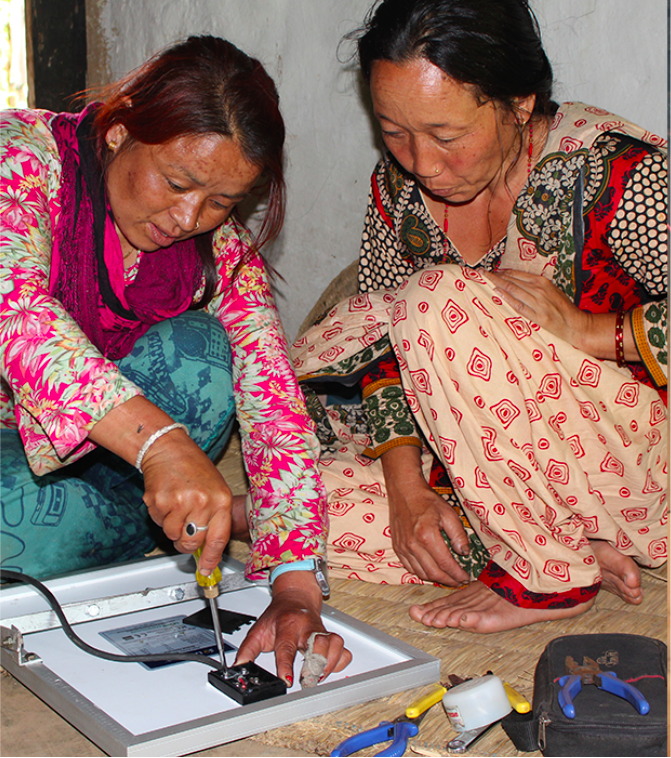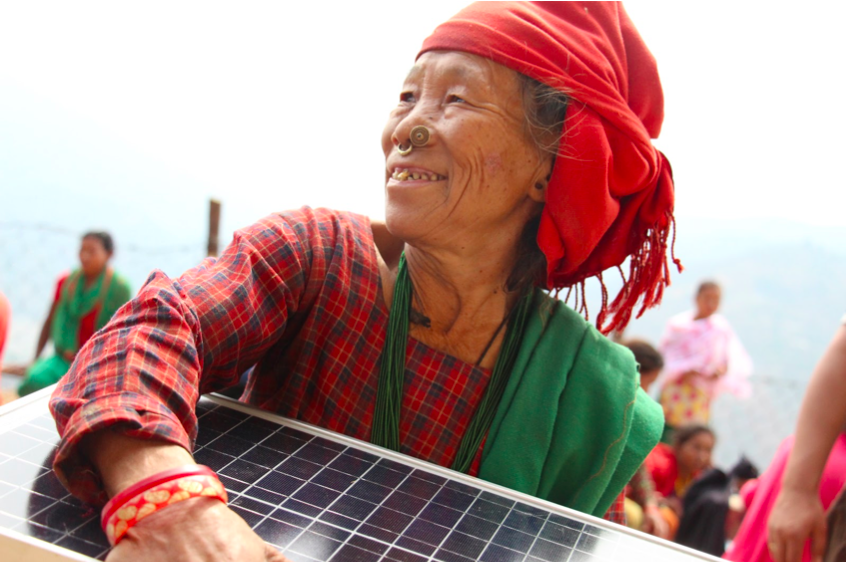
Karuna-Shechen is breaking down taboos about what rural women can and cannot do, and in doing so is changing the way people think. As the Dalai Lama often says, we need empathy, selflessness and compassion more than ever. It is time to enter the “age of women”.
Matthieu Ricard
Although Nepal is moving forward on issues of gender equality, the society is still rooted in a patriarchal system. According to a 2004 UN report, only the father, or another male member of the household, can determine the nationality of his children, and a woman needs permission from her husband to hold a passport. According to a Unesco study in 2018, there is also an 18.9 point gap between the literacy rate of men and women. Karuna Shechen, through its various programs, is raising awareness of women’s health issues in the communities. Nepal is one of the few countries where women’s life expectancy is lower than men’s due to the health risks of inadequate nutrition, early marriage, pregnancy, childbirth, and little access to health care. In rural Nepal up to 25% of women suffer serious health consequences from pelvic organ prolapse (POP).
At Karuna-Shechen, we firmly believe that women are agents of change and that they represent a powerful force for creating a more altruistic world.
A new professional opportunity
Karuna-Shechen’s solar energy program combines two objectives: to provide clean electricity to isolated households, and to give women the opportunity to be light bearers in their communities. The women take a 14-day training course in Kathmandu to become solar technicians. Upon their return, they install and maintain solar home lighting systems in their villages. In 2020, 600 homes will be equipped with solar panels and 12 women will receive training.

Anju Yonjan is a woman from the village of Khadadev in Nepal. She chose to participate in the solar panel electrification programme offered by the association in 2017 :
After the training, we started wiring the houses, tasks such as installing new light bulbs and replacing damaged ones.
In 2019, determination and skills of these women brought home electricity to 2,400 people. The program has been enhanced by the construction of shops in three villages in Nepal, which themselves have a wide outreach : “My shop is on the roadside and it is easy for everyone to access. As a result, customers come from villages such as Choprang, Phanjyang, Bhirkot, Pankhar, Nigalapani and Majuwa,” says Anju.
Although society does not encourage women to play an active role in their communities, their training has made them aware of their ability to change the way things are done. Thanks to this program, they are becoming self-reliant and entrepreneurs: an example for their peers and future generations to follow.
Women’s empowerment is at the heart of societal change
While most households in Nepal have an acceptance of gender inequality, Anju Yonjan is proof that there are exceptions and brings everyone hope for change in Nepalese society. For this woman, it is partly thanks to the support of her husband that she has been able to come so far: “I have not faced any restrictions or family problems. On the contrary, my husband supports me to go ahead and participate in projects that can advance the position of women in society. (…) Some villagers make comments and criticize my different activities but I am sure that in time the criticism will stop.” (…) All people need clarity in their lives, and we have never had such an opportunity in the past.”
It is a great achievement that women, who are usually confined to their homes doing housework, were able to acquire knowledge and skills by going to Kathmandu on their own. This training has given me confidence in women’s abilities. We can be technicians and entrepreneurs.

Being a technician and an entrepreneur not only gives women useful skills in the economic sphere, but also leads them to play a new and much more active role in reshaping Nepalese society. They seek out new responsibilities, which extend to the political sphere: ‘I am a member of the Saraswati School Management Committee. I am also the secretary of the user group for the road and development project in the village,” says Anju. She concludes: “However, what I remember most about this training is the skills I have gained, not the income I now earn.” Today, Anju is building on the confidence she gained during her training, which benefits her village and Nepalese society.
To support her initiative and the villagers of Khadadev in Nepal, you can make a donation or participate in Action for Karuna, a movement of altruistic initiatives, by joining a volunteer’s solidarity workshop. For more information, please visit our website.
